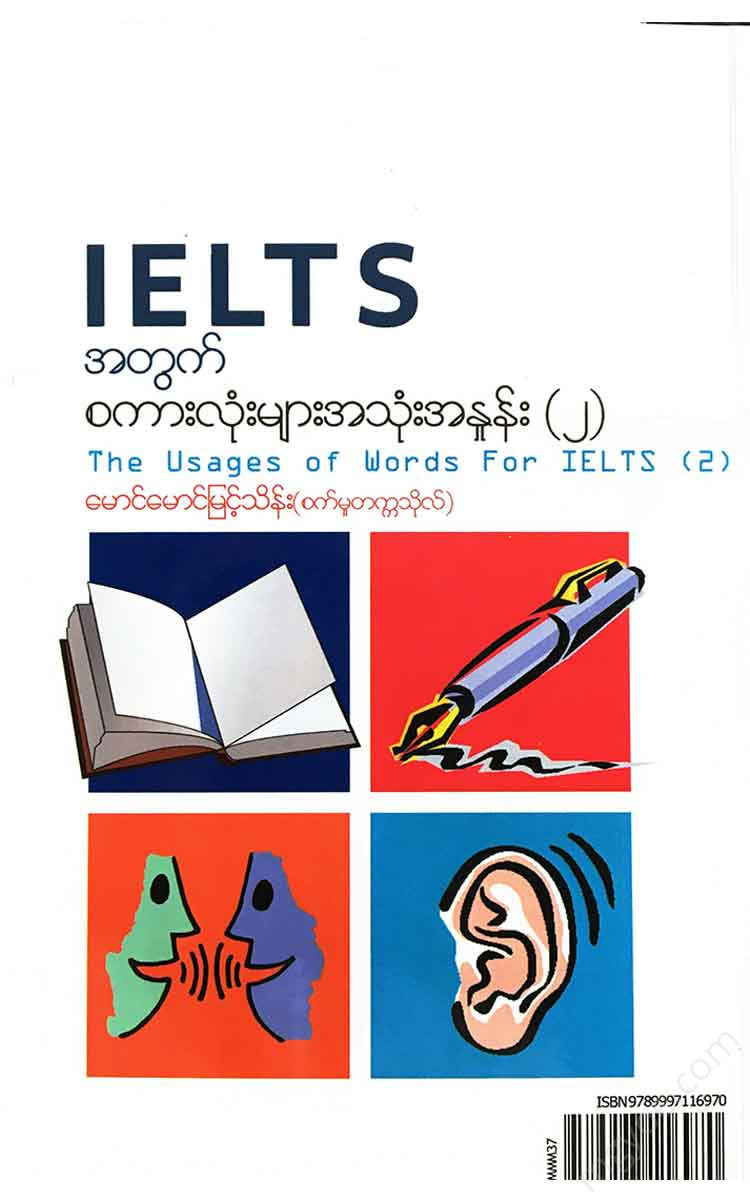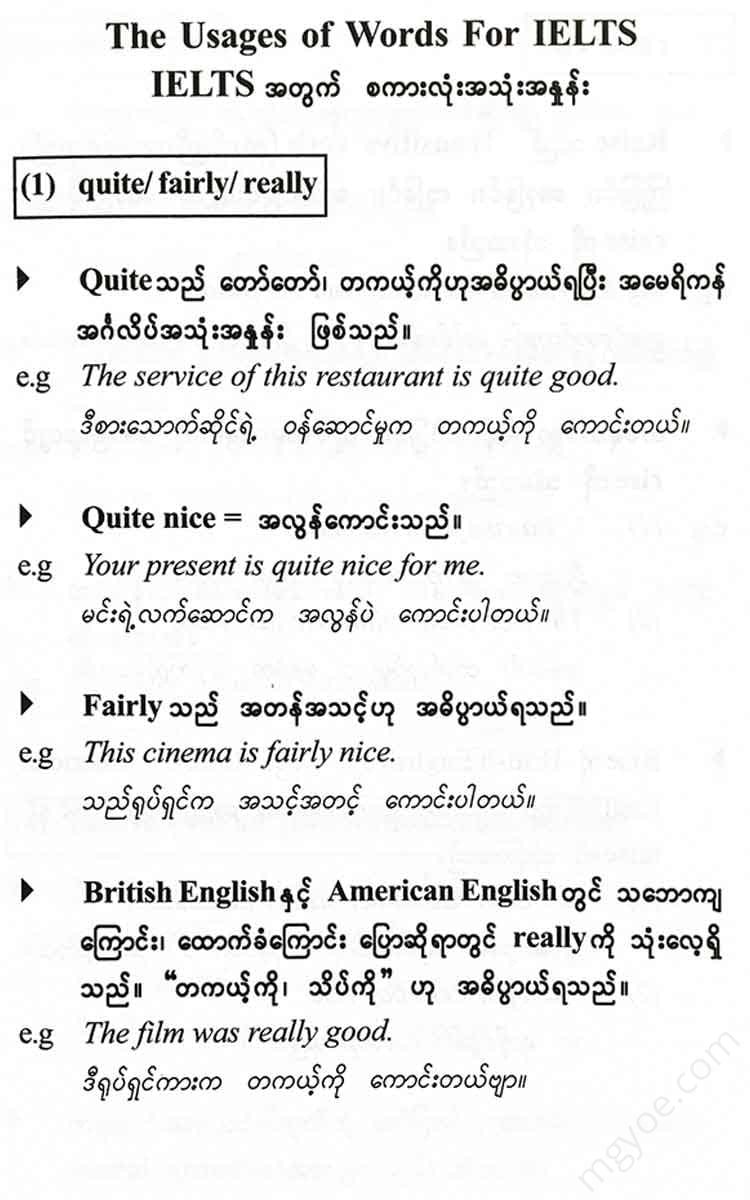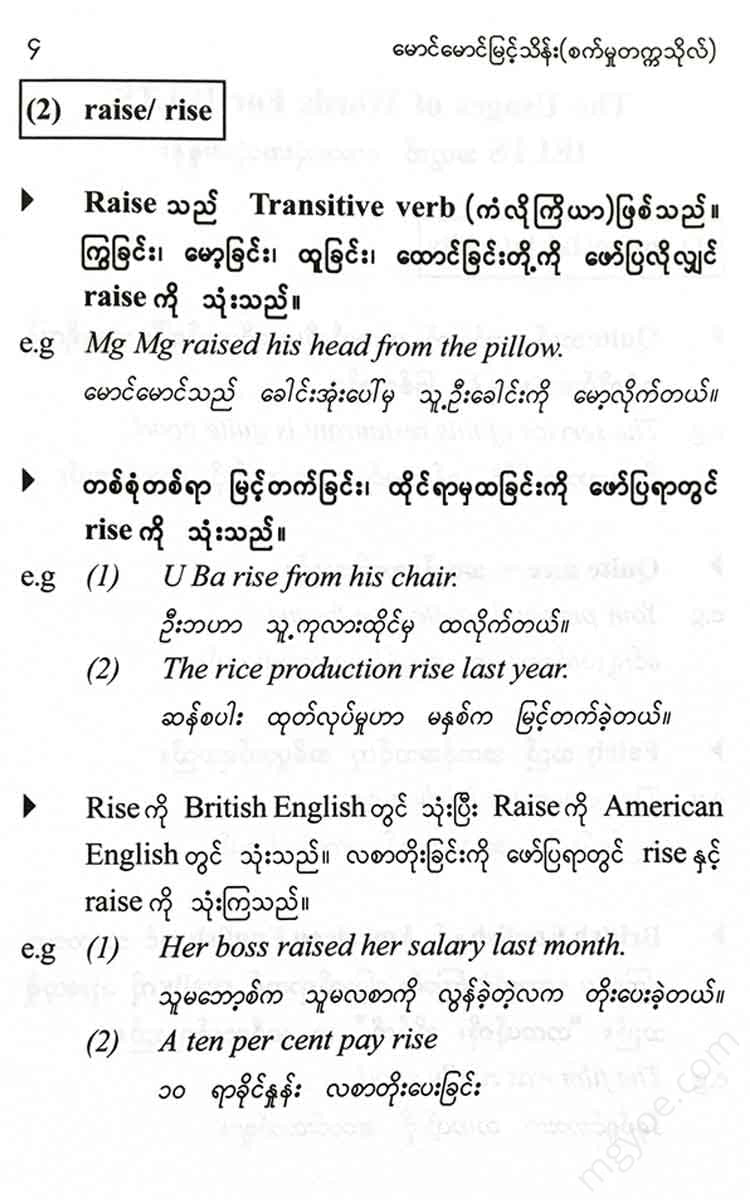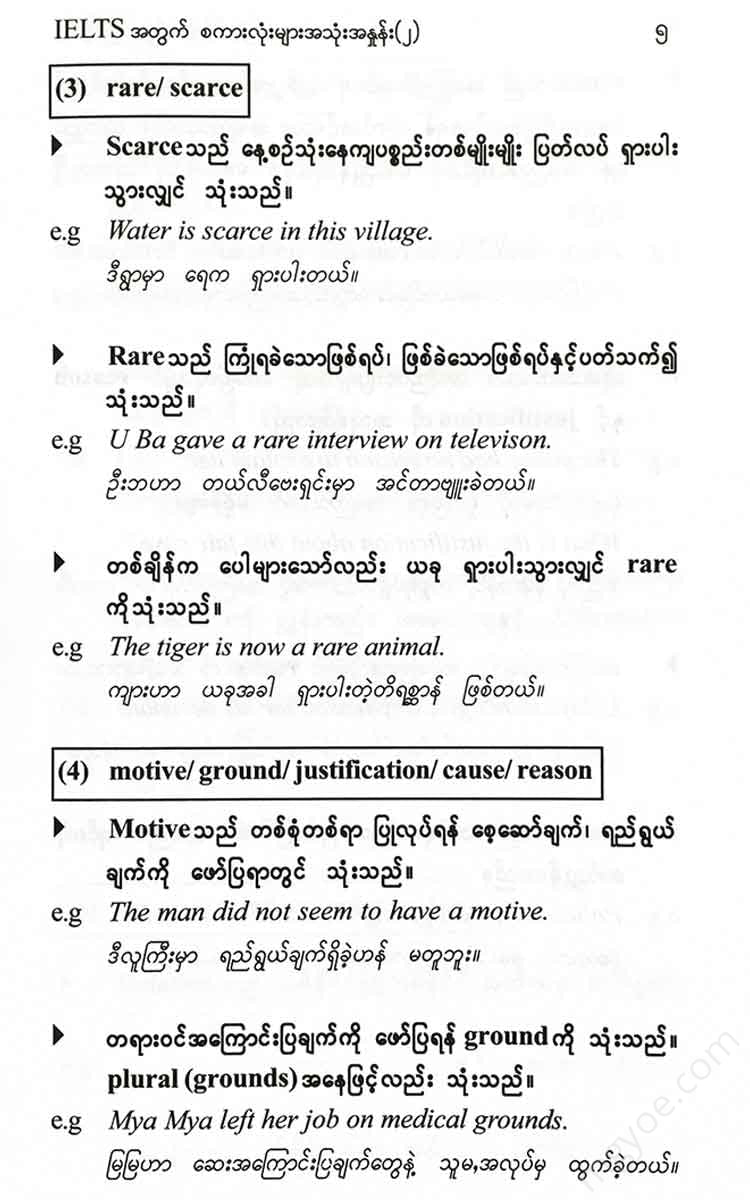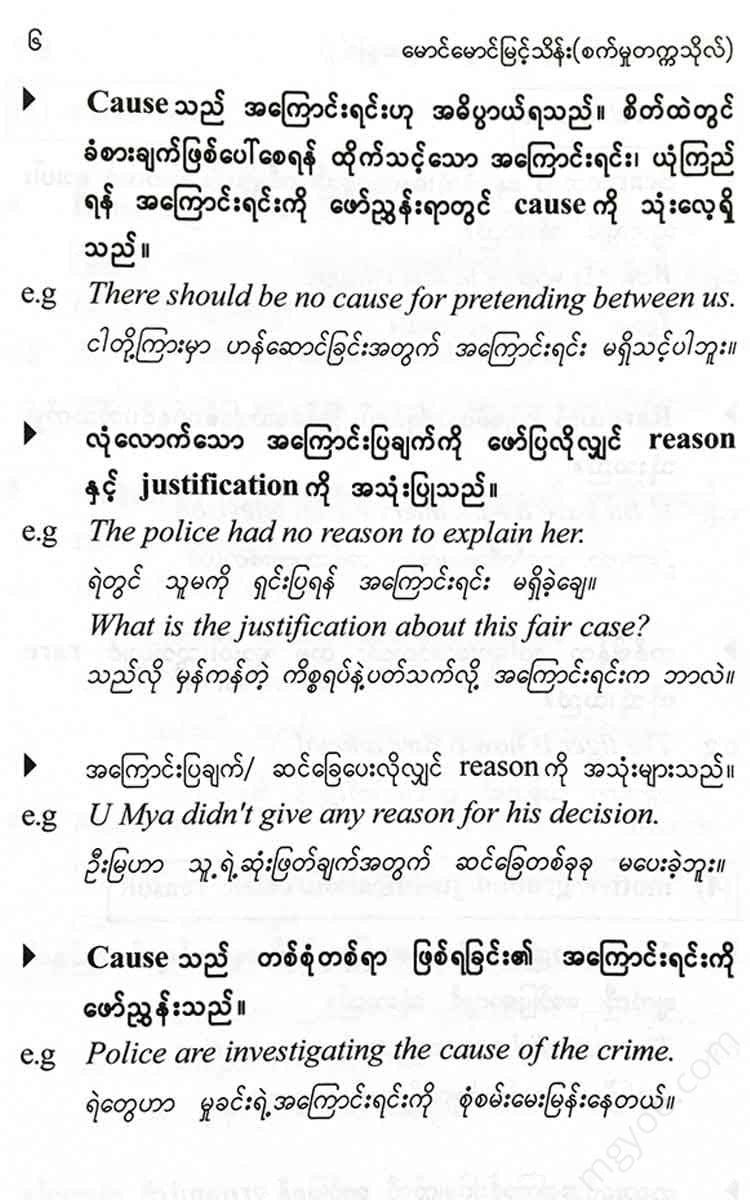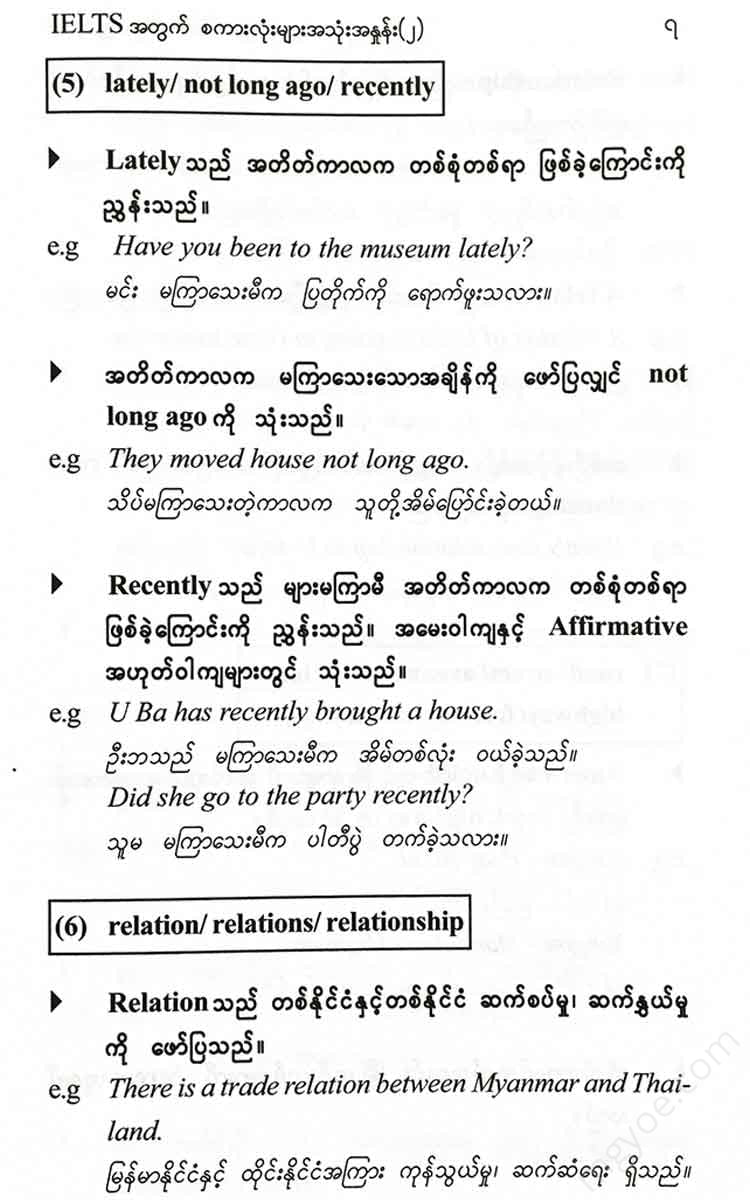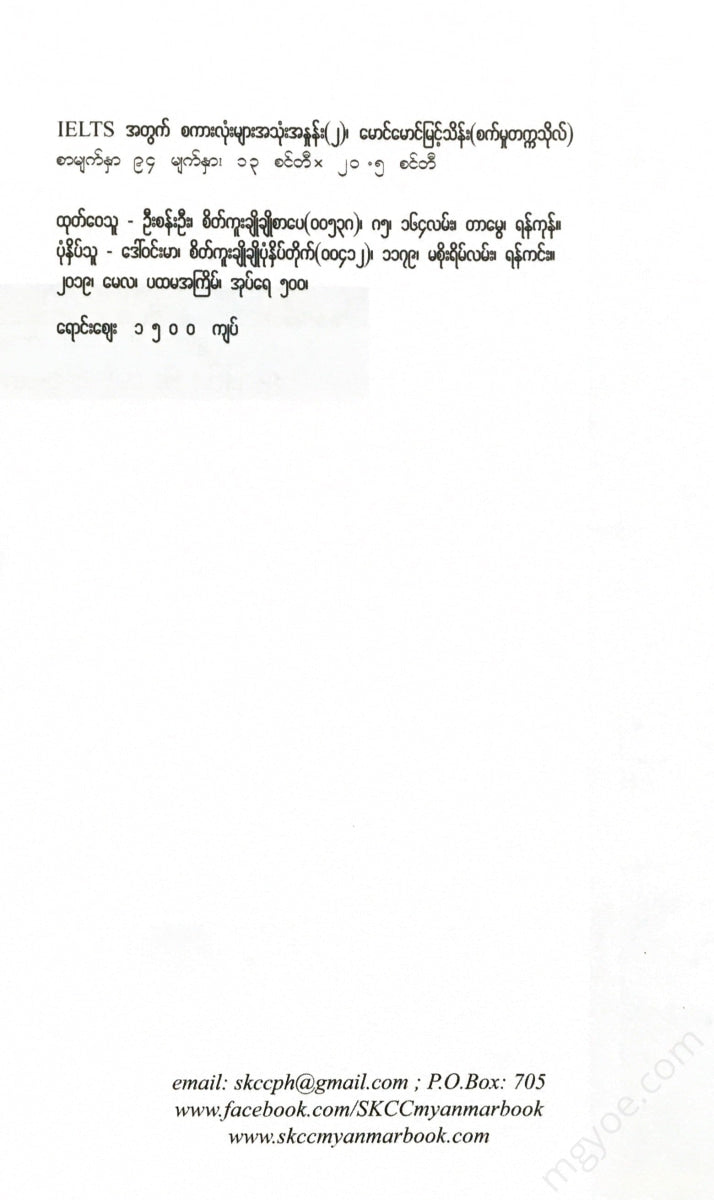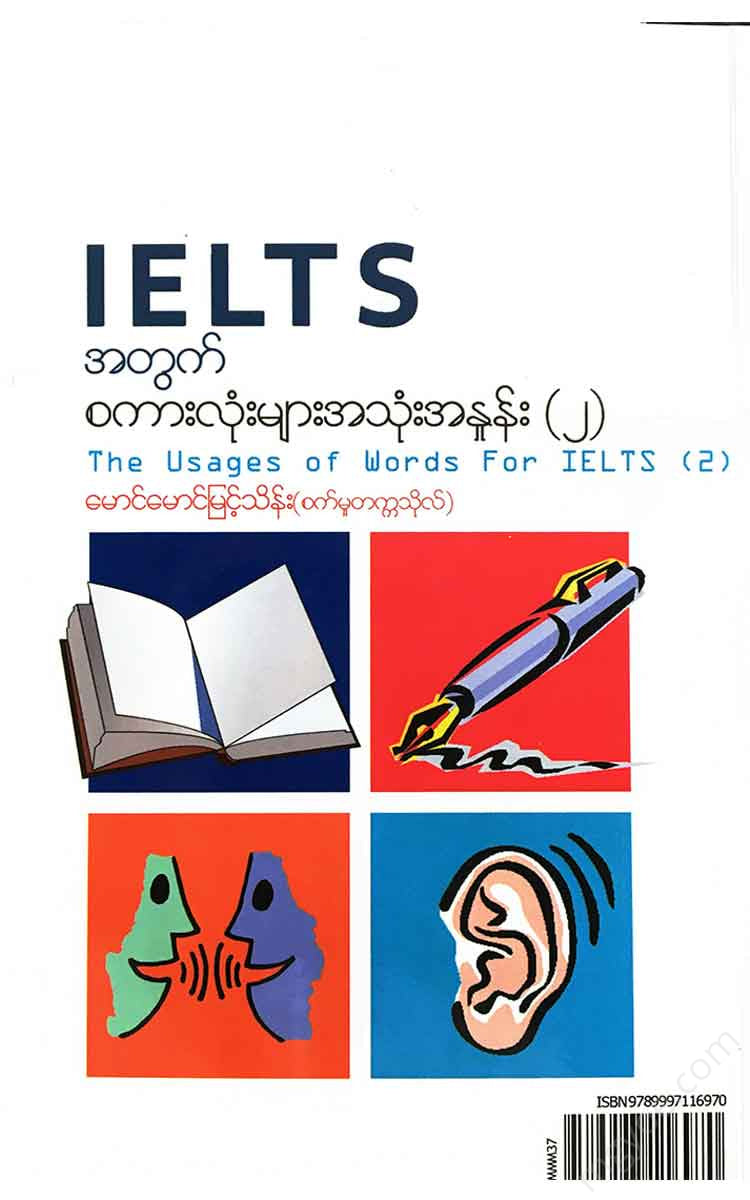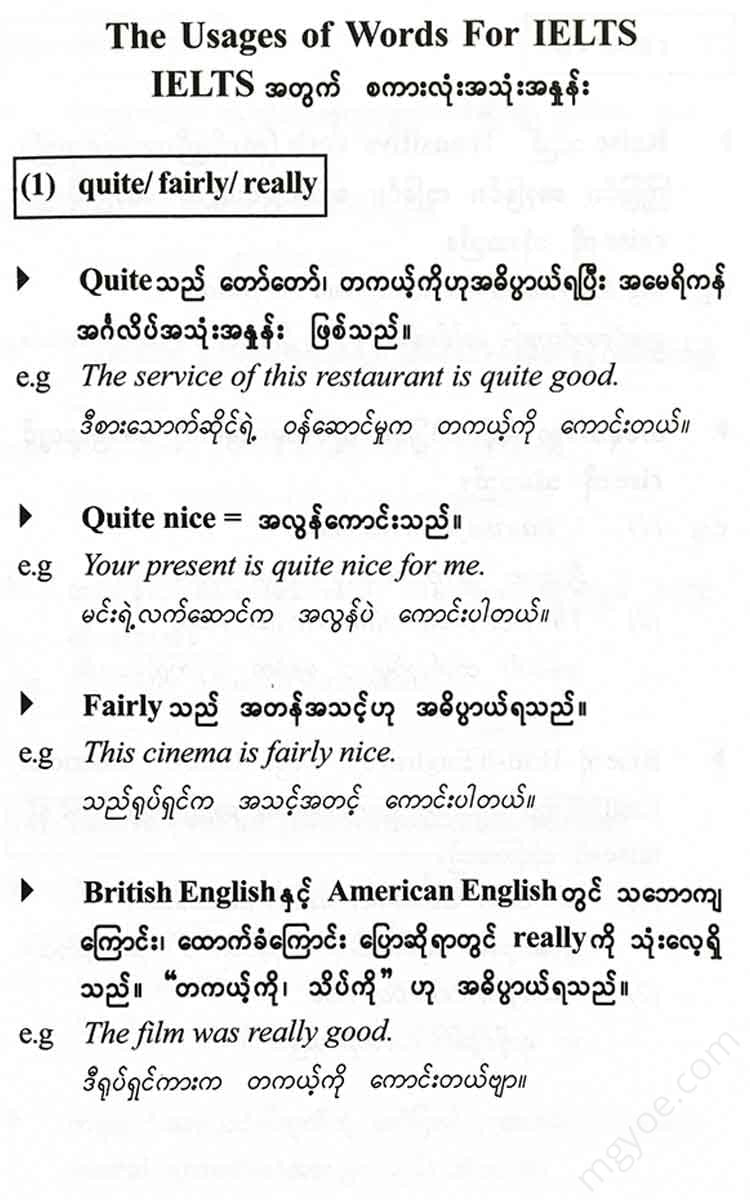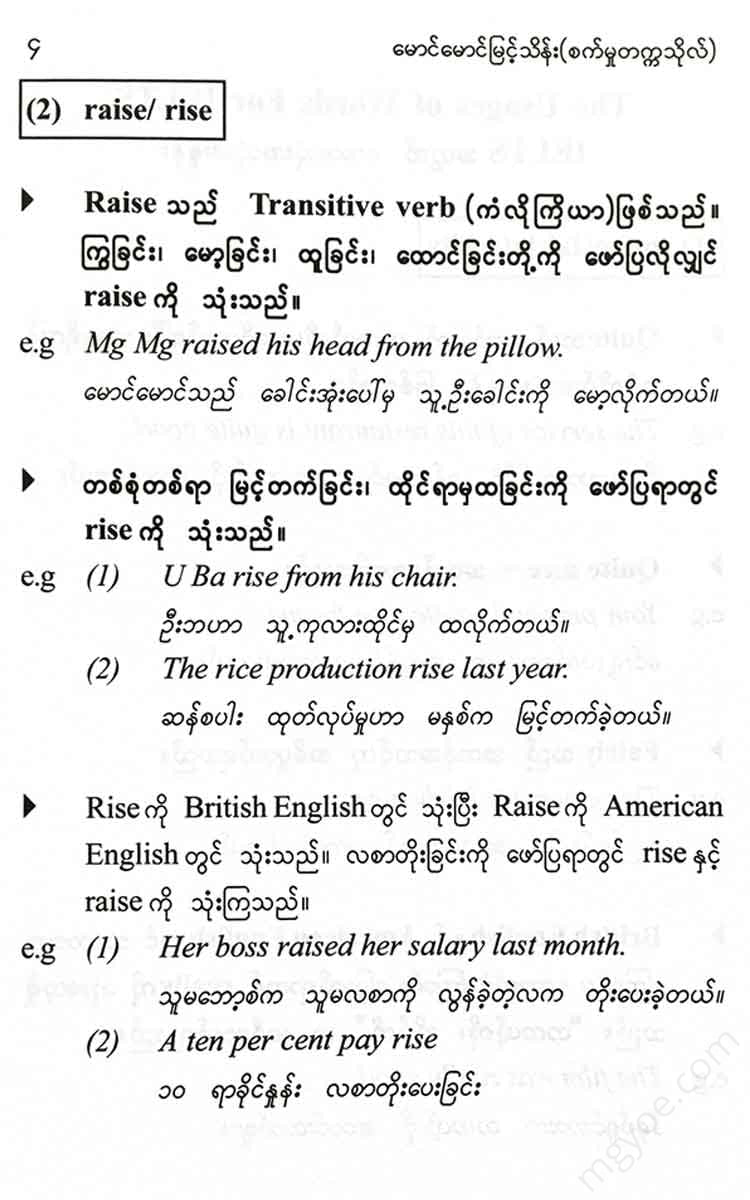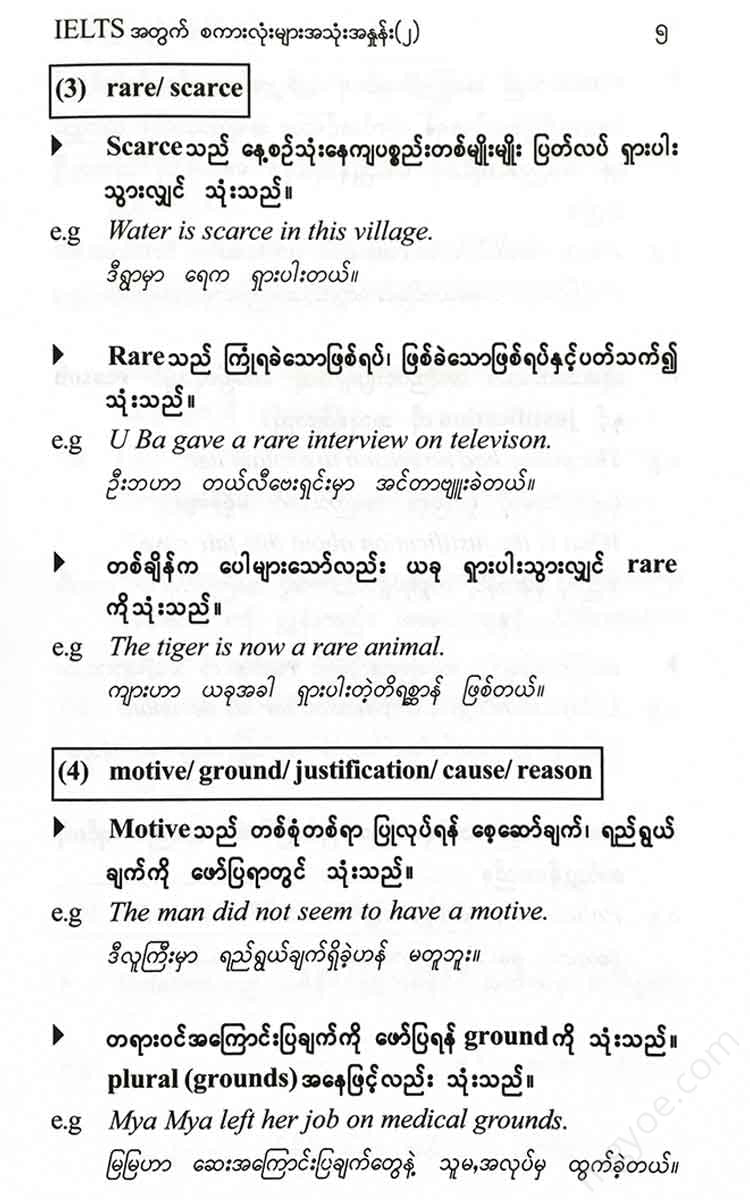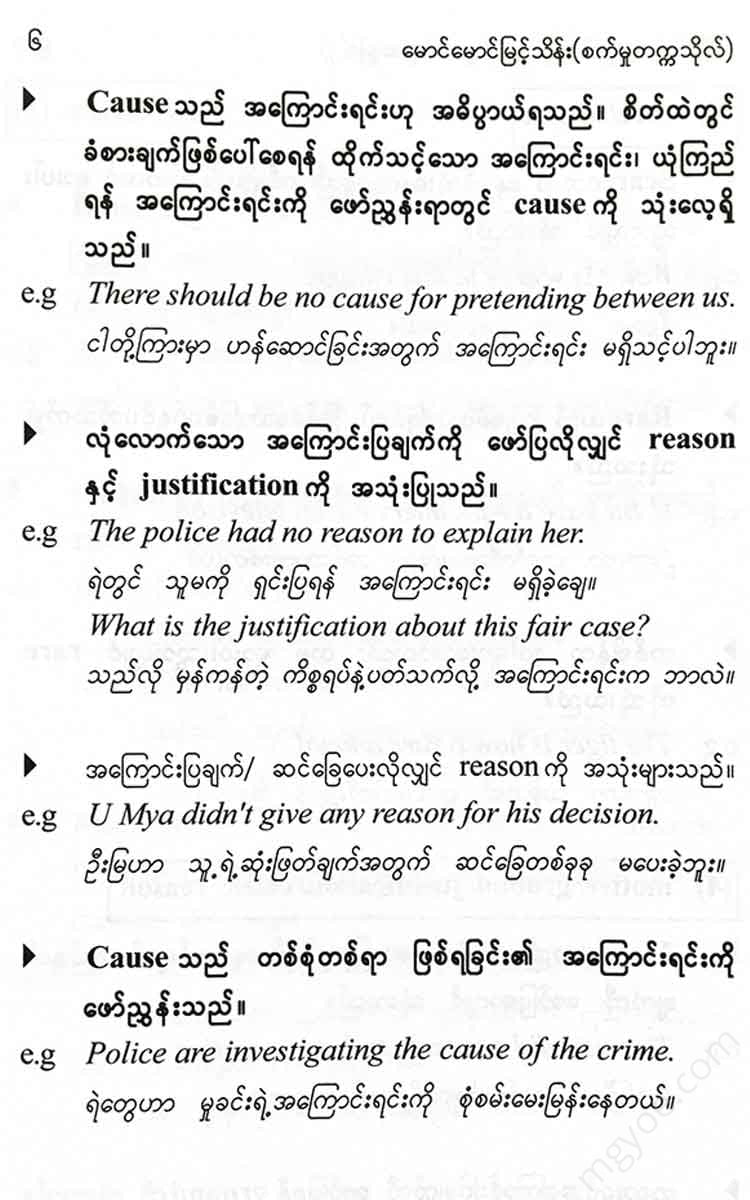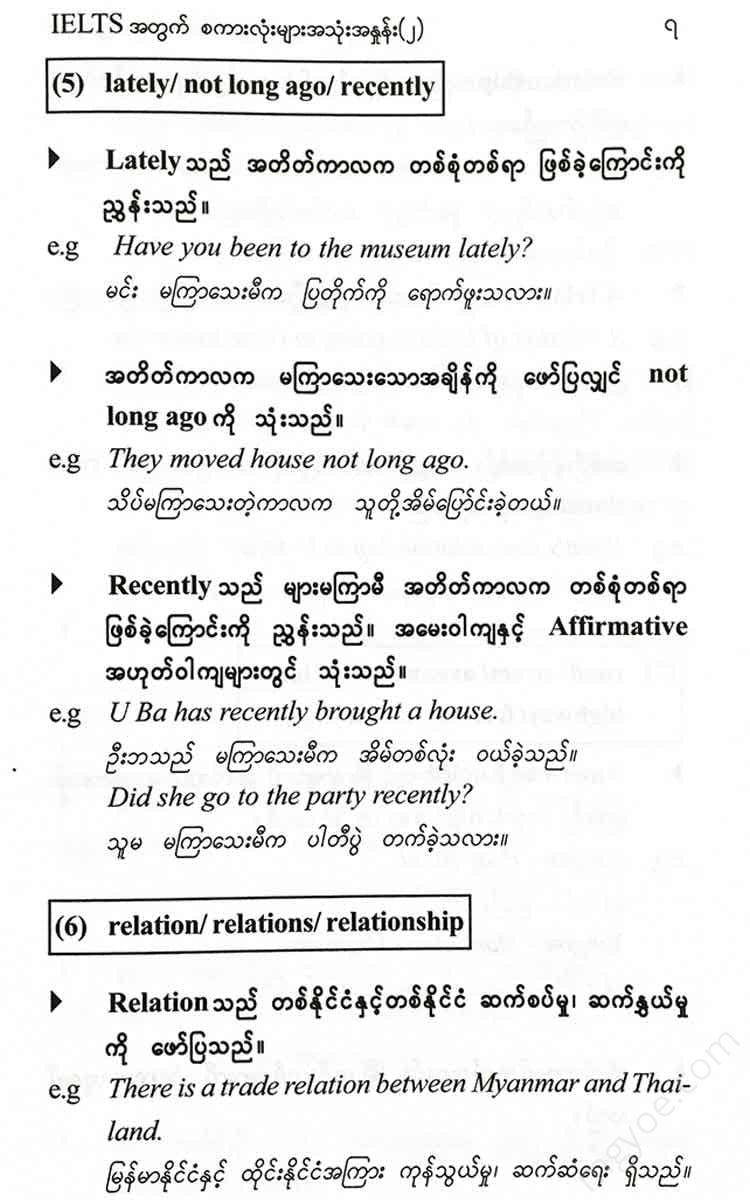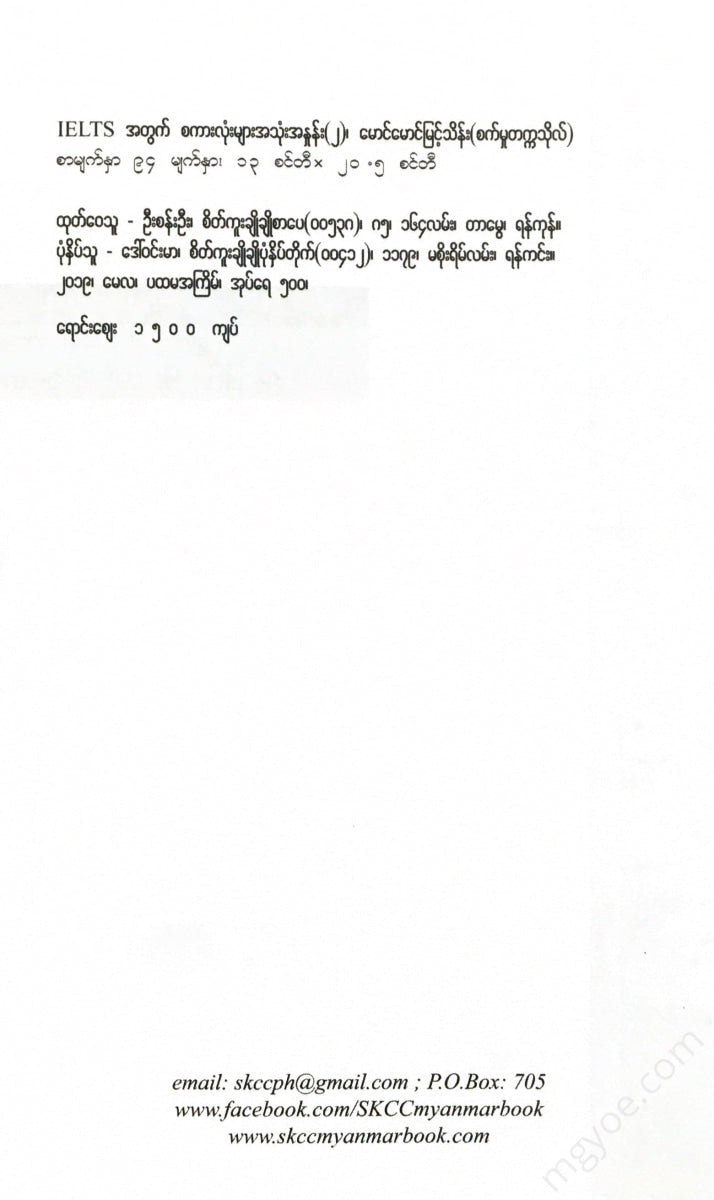စိတ်ကူးချိုချိုစာပေ
Maung Maung Myint Thein (University of Technology) - Vocabulary for IELTS (2)
Maung Maung Myint Thein (University of Technology) - Vocabulary for IELTS (2)
Couldn't load pickup availability
The Usages of Words for IELTS
Vocabulary for IELTS
(1) quite/ fairly/ really
Quite is an American English word that means quite, really.
eg The service of this restaurant is quite good.
The service at this restaurant is really good.
► Quite nice = very good. .
eg Your present is quite nice for me. Your present is quite nice for me.
Fairly means moderate.
eg This cinema is fairly nice.
The movie is pretty good.
In British and American English, really is often used to express approval or approval . It means “really, very much.”
eg The film was really good. This film was really good.
(2) raise/ rise
- Raise is a transitive verb.
If you want to express lifting, lifting, raising, or hanging,
Use raise.
eg Mg Mg raised his head from the pillow.
Maung Maung lifted his head from the pillow.
Rise is used to describe something rising, getting up from a sitting position .
eg ( 1) U Ba rise from his chair.
U Ba got up from his chair.
(2) The rice production rose last year.
Rice production increased last year.
Rise and raise are used in British English, while raise is used in American English. Rise and raise are used to describe a salary increase .
(1) Her boss raised her salary last month.
Her boss gave her a raise last month.
(2) A ten percent pay rise
10 percent salary increase
( 3) rare/ scarce
» Scarce is used when a certain everyday item is in short supply.
eg Water is scarce in this village.
Water is scarce in this village.
Rare is used to refer to an event that is rare or happens infrequently.
eg U Ba gave a rare interview on television.
U Ba rarely gives interviews on television.
Rare is used when something was once abundant but is now scarce .
eg The tiger is now a rare animal.
The tiger is now a rare animal.
(4) motive/ ground/ justification/ cause/ reason
» Motive is used to express the motivation or purpose for doing something.
eg The man did not seem to have a motive.
This man seemed to have a different purpose.
Ground is used to express a legal reason.
Also used as a plural (grounds).
eg Mya Mya left her job on medical grounds.
Mya Mya quit her job for medical reasons.
Cause means reason. Cause is often used to describe a reason that is appropriate for causing a feeling in the mind, a reason for believing.
eg There should be no cause for pretending between us. There should be no cause for pretending between us.
Reason and justification are used to express sufficient reasons .
eg The police had no reason to explain her.
The police had no reason to explain it to her.
What is the justification about this fair case? What is the justification about this fair case?
> Reason is commonly used when giving a reason/excuse .
eg U Mya didn't give any reason for his decision.
U Mya did not give any reasons for his decision.
Cause refers to the reason why something happens.
eg Police are investigating the cause of the crime.
The police are investigating the cause of the crime.
(5) lately/not long ago/recently
> Lately refers to something that happened in the past.
eg Have you been to the museum lately?
Have you been to the museum recently?
To express a recent time in the past , use not long ago.
eg They moved house not long ago.
They moved house not long ago.
Recently indicates that something happened recently in the past. It is used in questions and affirmative sentences.
eg U Ba has recently brought a house. U Ba recently bought a house.
Did she go to the party recently? Did she go to the party recently?
(6) relation/relations/relationship
Relation describes the connection and connection between one country and another.
eg There is a trade relationship between Myanmar and Thailand.
There is trade and relations between Myanmar and Thailand.
